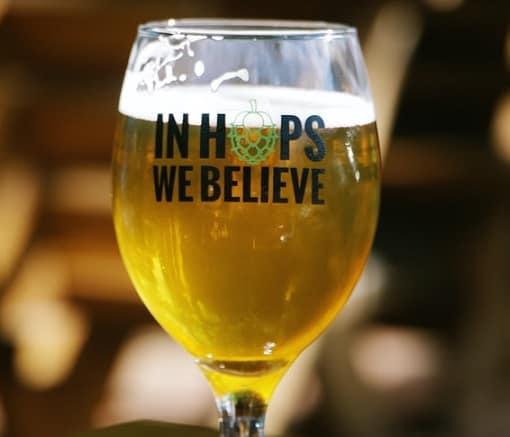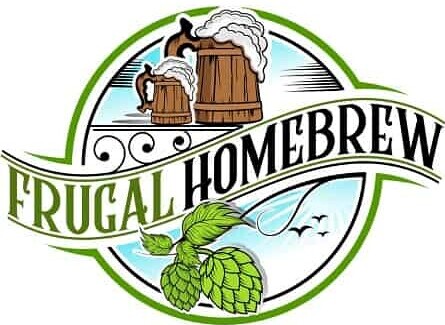
It seems like every day they are coming out with extremely hoppy beers. Not only that but they all seem to have a very high alcohol content. It begs the question, is there some correlation between hops and alcohol content?
Hops do not add alcohol percentage to beer. Hops do not contain sugar, meaning it cannot contribute to alcohol percentage. Yeast creates alcohol through fermentation of sugar. Hops help to offset the sweetness of malt content that would otherwise make beer too sweet and undrinkable.
Because beer with higher alcohol percentage tends to have loads more malt and thus more sugar, it is necessary for the incorporation of more hops to lower the perceived sweetness.
At least this is how it has been for hundreds of years dating back to the days of monks brewing beer in monasteries.
But nowadays science and experimentation is showing hops don’t have to be direct contributors to bitterness.
Hops do not Create Alcohol
Alcohol is a byproduct of yeast. The food that the yeast will eat are sugars. This is often referred to as fermentable sugar.
One interesting tidbit is that not all sugars are fermentable and some sugars are harder to ferment than others.
For example here are a few ways your sugars could be harder to ferment.
- You burn the sugars during the boil.
- You mash the sugar at higher temperatures.
So make sure that you are not burning your sugars. Also if you would like more information on mashing your grain check out this article on brewing an all-grain beer.
Now that you know how alcohol is created, why don’t hops contribute to this?
Hops are composed of oils and acids. None of which include sugar. Although hops do have some interesting properties and you can read up on their nutrition and medicinal qualities.
More Malt, More Sugar, More Hops
When it comes to IPA’s I hear one comment a lot by hop heads.
I don’t know why people say IPA’s are bitter. I think IPA’s taste super sweet.
My Dad.
I think its a bit hilarious and at the same time look at him likes he’s a little bit crazy. By comparison I think IPA’s are super bitter, but there still might be something to his point of view.
If you get past the bitterness of overly hoppy beers then you can actually taste the sweetness of the extensive amount of malt used to brew these types of beer.
In order to make a delicious IPA you essentially need a lot of hops to balance the sweetness and bitterness. But its also interesting how you can use hops to bitter a beer at different points of the brew.
Hop Bitterness and Sweetness
Hops are not inherently bitter. They come from a vine and are actually a flower. So they inherently have a floral flavor, and through selective breeding take on an abundance of different flavors.
So if hops are not inherently bitter what makes them bitter?
Hops get their bittering from a chemical process that takes place during the boil. That’s why as soon as a boil is achieved a specific kind of hop is added to the boil. This is the bittering hop.
The job of this hop is to balance the sweetness of the malt. But there is another hop added at the end that contributes more to the beer.
These are aroma and flavoring hops. They are those specially bred hops that really give a beer its flavor and smell.
There are new methods of adding hops gaining popularity check out this article on how to whirlpool hops for more information.
Certain classes of beer have taken this to an entirely new level. For example New England IPA. This beer utilizing a lot of hops but is not as bitter as its western United States counterpart.
If you are curious about brewing your own New England IPA from all-grain check out my make a hazy beer article.
The reason its not as bitter is because there is little use of bittering hops and most of the hops are put in after the boil.
Hops and Bang for Your Buck
There is a theory going around that the reason many of the hoppy beers have a higher abv is because people imagine they are getting more bang for their buck.
Hops are well, shall we say expensive!
Some of the very new and popular hops can get extremely expensive for their rare flavor and aroma profile. This makes things a bit tricky.
The reason being is if you want to have a large amount of hops in a beer it will be expensive to produce. So the theory is, breweries make their beers have more alcohol in them in order to satisfy a higher price point.
However, I believe this theory is false.
While the theory does make a lot of sense it fails to take into account historical reasons for utilizing hops.
The Invention of the IPA

The IPA has its origins as a heavily hopped beer that traveled to India from England. It was not only exported to India, but also many of England’s other colonies.
The interesting part about this original IPA, is it did not have a higher content of alcohol than other beers at the time.
The main difference was the utilization of more hops in the brew. This allowed the beer to survive the long overseas journey and even taste better upon arrival.
Which is a bit weird since IPA’s get worse over time because hop flavors degrade. But, that’s only half the story.
Hop Freshness and Anti-microbial Properties
Hops are anti-microbial, which means they can keep a beer from getting infected by bacteria. Which was a real danger at the time. Especially since beer alcohol content was so low.
A beer can sour and spoil if its infected with bacteria, which is why its so darn difficult to add fruit in secondary.
So, the idea was the beer would not spoil, but it would not have those bright fresh hop notes that we expect today.
I would also add that the hops during that time period were not exactly as advanced as they are today.
Back to the Money Question

While it is certainly possible that brewers nowadays focus on giving more value to their customers by upping the alcohol percentage, it is not a requirement.
In direct contrast to this are pale ales and session IPA’s. Not everyone wants to get utterly destroyed after just a few beers, some enjoy those bright hop flavors and want to drink for an extended period of time.
These lower beers tend to incorporate hops in a much balanced approach when utilizing malt. So their percentage tend to be lower as well.
So to answer the correlation question hoppier beer are not always higher in alcohol content, but rather exist on a sliding scale with malt.
In the end it really depends on how much hop punch the consumer wants in his or her beer and in today’s world of extremes the higher percentages get more notoriety even if they are a minority.
